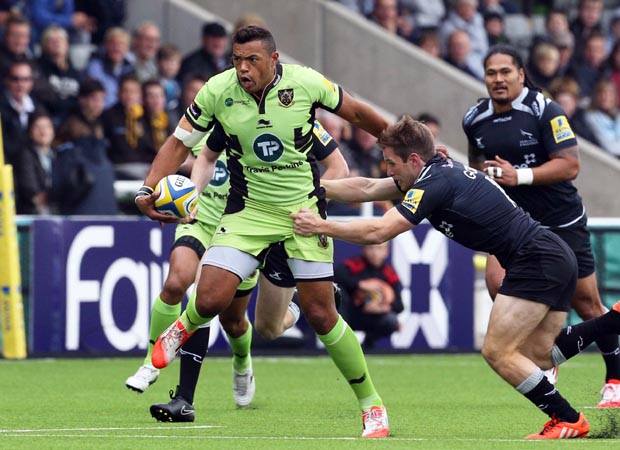 There has been interesting debate surrounding Wednesday’s announcement by Ian Ritchie, the RFU chief executive, that Stuart Lancaster and his assistant rugby coaches have all had their coaching contracts extended until 2020.
There has been interesting debate surrounding Wednesday’s announcement by Ian Ritchie, the RFU chief executive, that Stuart Lancaster and his assistant rugby coaches have all had their coaching contracts extended until 2020.
Rightly or wrongly the RFU have decided not to announce the finer points in those contracts. Namely, is that length of contract in any way dependent on performance, and is there a break clause if the England team start losing more than they win?
Let’s not be silly here, many organisations appoint a CEO with the likelihood that they come accompanied with a three to five year plan to progress the company. So, there’s nothing wrong in doing something out of left-field for the RFU by naming a long-term coach.
There is also nothing wrong with having a review system, and I do believe that if England are not a success in the 2015 World Cup then Lancaster and Company will go. The RFU will pay up and they will be jettisoned.
However, any new coach should be given reasonable time to put their mark on the team. They need immediately to look, listen and learn about the current incumbents they’ve inherited and then implement their own plans for change.
Change can take a long time especially if the team you take over has established players. Very few people like change, its unsettling not to know what’s happening.
A coach ideally would like a team that picks itself because of performance, in that the incumbents are playing so well they have to be selected. If you’ve got an experienced team playing well you’re on to a winner. That stat about the past World Cup-winning teams averaging 600 caps is testament to that point.
I’ve been fortunate enough to have been inside this England camp. My observation would be that Stuart Lancaster is creating what he believes is the right environment for elite England rugby performance now, and in the future. I don’t disagree with the ambition, and, having had a nano-second of insight my feeling is that he and his assistants are heading in the right direction.
A good team culture is a core part of becoming a champion outfit. It puts the emphasis on players becoming better people, and bringing out the best in each other binds teams together.
My experience of playing in elite teams was with Bath, who won a lot of titles and trophies, England, who had a 70 per cent plus win success, and on three Lions tours, in which we were successful twice. The training and learning environment created by those Bath, England and Lions coaches at the time were very similar to what Lancaster is striving for now.
The culture has to be challenging, competitive and hugely respectful. You don’t have to like each other – but you must respect one another for what you do on the field and how you conduct yourself off it.
Lancaster took a broom to the squad he inherited and swept out everything he thought would be obstructive to his re-structuring and re-centring of group culture. Then he started his process, and my thoughts are that a coaches need at least three seasons with a squad to ingrain their playing philosophies.
The first season you’re deciding which players are close to the same page as you and have what it takes to deliver, while also bringing in and sourcing new players.
By the end of the second season the new squad should be comfortable with philosophies and strategies. By the end of the third season you should be pretty close to accomplishing what you set out to achieve, with the proviso that you’ve had everything you needed and haven’t suffered any long term injuries to your key leaders on the pitch.
Year four and you should be absolutely flying, and playing to expectation – although you have to allow for the odd poor performance here and there that even the All Blacks produce from time to time.
Lancaster will be very close to having the team he wants come RWC 2015. But very close isn’t quite there. The likelihood is that this World Cup will come a season to soon for this current England squad.
For instance, England’s midfield is like an Ikea wardrobe that someone’s put together and which looks complete, only for them to discover that there are some screws and plugs left over that would make the cabinet secure and long-lasting.
Without doubt 10, 12 and 13 have yet to be rubber-stamped, and the wings don’t look completely screwed down either.
That’s not being pessimistic about England’s 2015 chances because I’m in no way saying they cannot win it. At home they will be very hard to beat playing mostly at Twickenham in front of a home crowd. However, they are not nailed-on favourites.
Ultimately, giving Lancaster the extension to his contract will give his England squad the opportunity to defend the World Cup as champions in Japan in 2019 – or, if they get close enough, to use that tournament to make amends for not getting over the line in 2015.
























Pingback: บับเบิ้ล กันกระแทก